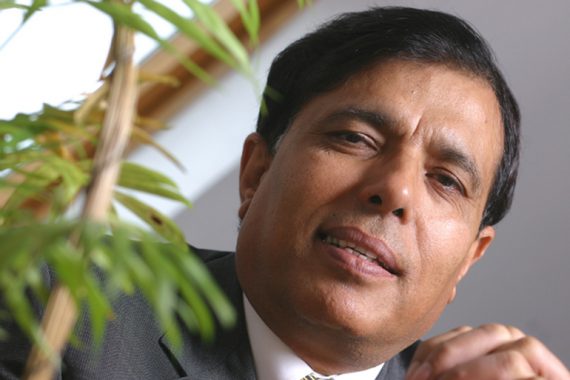Proposed visa changes could starve the NHS of overseas doctors

The NHS could be starved of doctors from overseas because of proposed new visa rules recommended by the migration advisory committee (MAC), that would leave them ’last in line’ for specialist and general practice jobs.
The committee has proposed to restrict the link between Tier 4 visas – for medical students and junior doctors – and Tier 2 visas – assigned to overseas doctors in specialty training. This would mean that affected graduates would only be able to take up specialty training posts if there wasn’t a suitable candidate from the European Economic Area. This would be a huge setback to the Government’s plan to implement seven-day services, and to recruit 5,000 more GPs by 2020.
It makes no sense to slap new charges on trusts that need to recruit from overseas
Further, proposed changes, which would increase the minimum salary requirement for a Tier 2 visa to £30,000 could penalise doctors, particularly women, who want to work part-time in order to raise children. In addition, the BMA is rightly concerned that a new levy of £1,000 for organisations that employ skilled migrants from outside the EU could cost the NHS up £3.5m a year. This political stunt could block much-needed specialist workers including GPs from settling in Britain when they are vital for our health services. The NHS is already facing a huge recruitment and retention crisis, which is bound to be aggravated as junior doctors in England consider the implications of the new contract imposed on them.
I have several problems with the recommendations of the MAC, a policy that is being proposed to solve a political – not practical – problem, which I believe at best won’t work and at worst could inflict serious harm on the NHS. With a majority of the NHS trusts reporting severe recruitment difficulties, especially for highly-skilled and specialised positions including GPs and nurses, it makes no sense to slap new charges on trusts that need to recruit from overseas – often because they are left with little alternative due to skills gaps here at home. In some specialities, such as general practice, we know that almost a third of the emerging workforce are overseas-qualified. Without these immigrant workers the NHS would come to a standstill. Estimates indicate that black and minority ethnic (BME) doctors have saved the Britain billions in training costs alone.
Many Asian and black health professionals have been the workhorses of the NHS, concentrated in the lowest paid, least glamorous specialities, in the least popular parts of the country. Some have faced racism and slow promotion in their working life. There are only five BME chief executives across more than 300 NHS organisations. Even royal colleges and the BMA don’t do very well in representing BMEs at the highest level.
I am one of the lucky ones. Having trained in India, I went on to have a successful and rewarding 35-year career as a GP in Ashton-under-Lyne, Tameside, an active role in the BMA and in local community. However, many BME communities’ experiences of health services are quite different to mine, and to those of the white British population. A survey of every NHS trust and primary care trust in England proves that BME workers are grossly under-represented among senior management but are disproportionately involved in disciplinaries, grievances, bullying and harassment cases and capability reviews.The MAC’s recommendations add insult to the injuries of the BME workforce in the NHS family.
BME staff are an essential and irreplaceable asset to the NHS, making up a quarter of the workforce overall, and higher proportions in some sections of the emerging workforce. The MAC is wrong to recommend yet another politically driven recommendation. I sincerely believe that such a policy if accepted, could have unintended consequences by blocking much-needed specialist and GPs, from settling in Britain when they are vital for our NHS. Ministers should reject this recommendation, and tread carefully on others, including higher minimum salary thresholds, which could stop many NHS organisations getting the skills they need to deliver safe and quality care to their patients.
Dr Kailash Chand OBE is the deputy chair of the BMA, and a retired GP.









